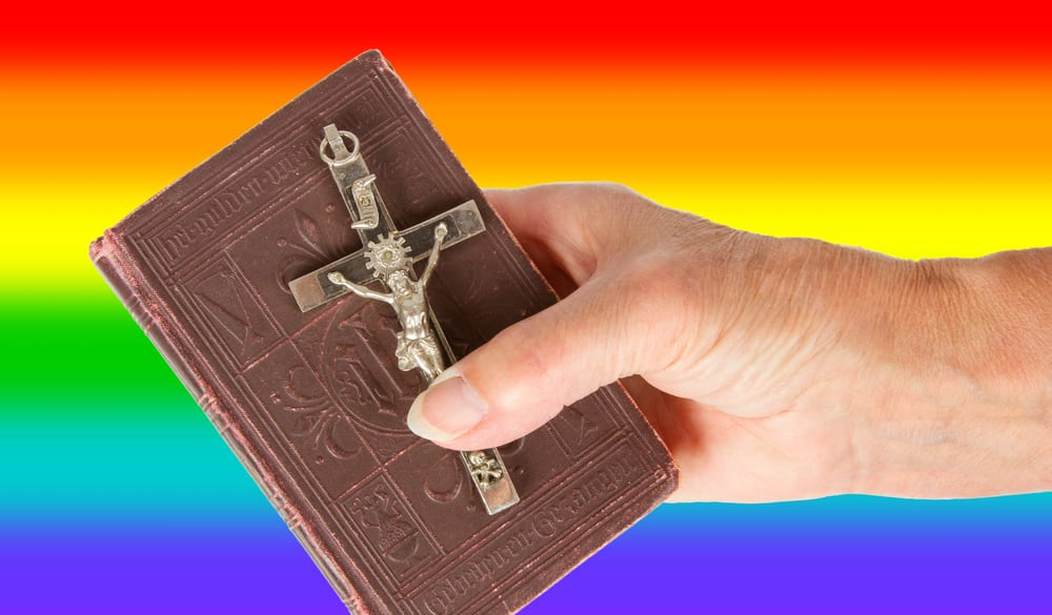A couple of weeks ago, I reported on Church Clarity, “a new website [that] seeks to provide a service that allows people to know exactly where churches stand on the issue of LGBTQ rights.”
Since the website’s launch, many progressive “Christian” leaders have come out in support of Church Clarity, while many conservative Christian leaders have bemoaned it as an ideological attempt to shame churches into compromise. In a guest post on Religion News Service, Barbara G. Wheeler lays out the reasons why, as an LGBTQ-affirming, progressive “Christian,” she’s opposed to Church Clarity. Ironically, her reasons for opposing it should cause conservative Christians to be wary of the new website.
Wheeler opens her article explaining:
For decades, I have been an ally and advocate for ordination of LGBTQ persons in the church and for same-sex marriage in the church and society. Though we’ve experienced significant legal and policy changes in some quarters, I hope to see ever-wider acceptance, welcome and support of sexual minorities. For these purposes, I believe Church Clarity’s approach is likely to be counterproductive.
Barbara Wheeler then provides four reasons for her opposition to Church Clarity:
- Untrustworthy Methods
- Poor predictors
- Change takes time
- No single issue defines the church
The thing that jumps out when reading the explanations for each of her four reasons is that Wheeler believes that Church Clarity allows anti-LGBTQ policies and beliefs to remain uncovered and unchallenged. As she notes in her closing sentence, “Putting churches into classificatory boxes makes it more likely that they will stay in them.”
In other words, the goal for progressive “Christians” shouldn’t be to provide clarity about which churches are affirming and which are not; the goal should be to ferret out non-affirming churches and goad them into compromising into eventual capitulation to the LGBTQ agenda.
Expressing concern over “untrustworthy methods,” Wheeler writes,
Church Clarity allows congregations to apply for affirming (or, presumably, non-affirming) status, but labels will also be affixed based on public statements of leaders and reports from “crowdsourcing.” While the group claims that its volunteer staff verifies these data points, it does not say what counts as verification. This means that volunteers who know little about particular traditions will do some of the classifying — and frankly, they may be wrong.
She’s worried that some churches that are not as affirming as she would prefer will be identified as such by affirming staff members who are zealous in their progressivism yet out of touch with the congregation. She clarifies this under “poor predictors”: “It is often difficult to know who speaks for a whole congregation. Most are mixed theological, political and social bags. Mountains of research confirm the ideological gaps between clergy leaders and many of their congregants.”
She concludes reason number 2, “poor predictors,” with the claim that “because few congregations are any one thing, published policies or lack thereof are often poor predictors of what an actual LGBTQ person or their family will experience in a particular place.”
Wheeler is afraid that Church Clarity will have the unintended consequence of “forcing persons and congregations to adopt a label, including the ‘harmful’ labels of ambiguous or unclear, freez[ing] the process of forming deep convictions at one point in time. This means that Church Clarity’s approach may make eventual affirmation of LGBTQ+ persons less, not more, likely.”
For Wheeler and other progressives, disagreement among churches over LGBTQ issues isn’t to be allowed. Any church that is non-affirming needs to change and become affirming. Church Clarity doesn’t further Barbara Wheeler’s agenda.









Join the conversation as a VIP Member